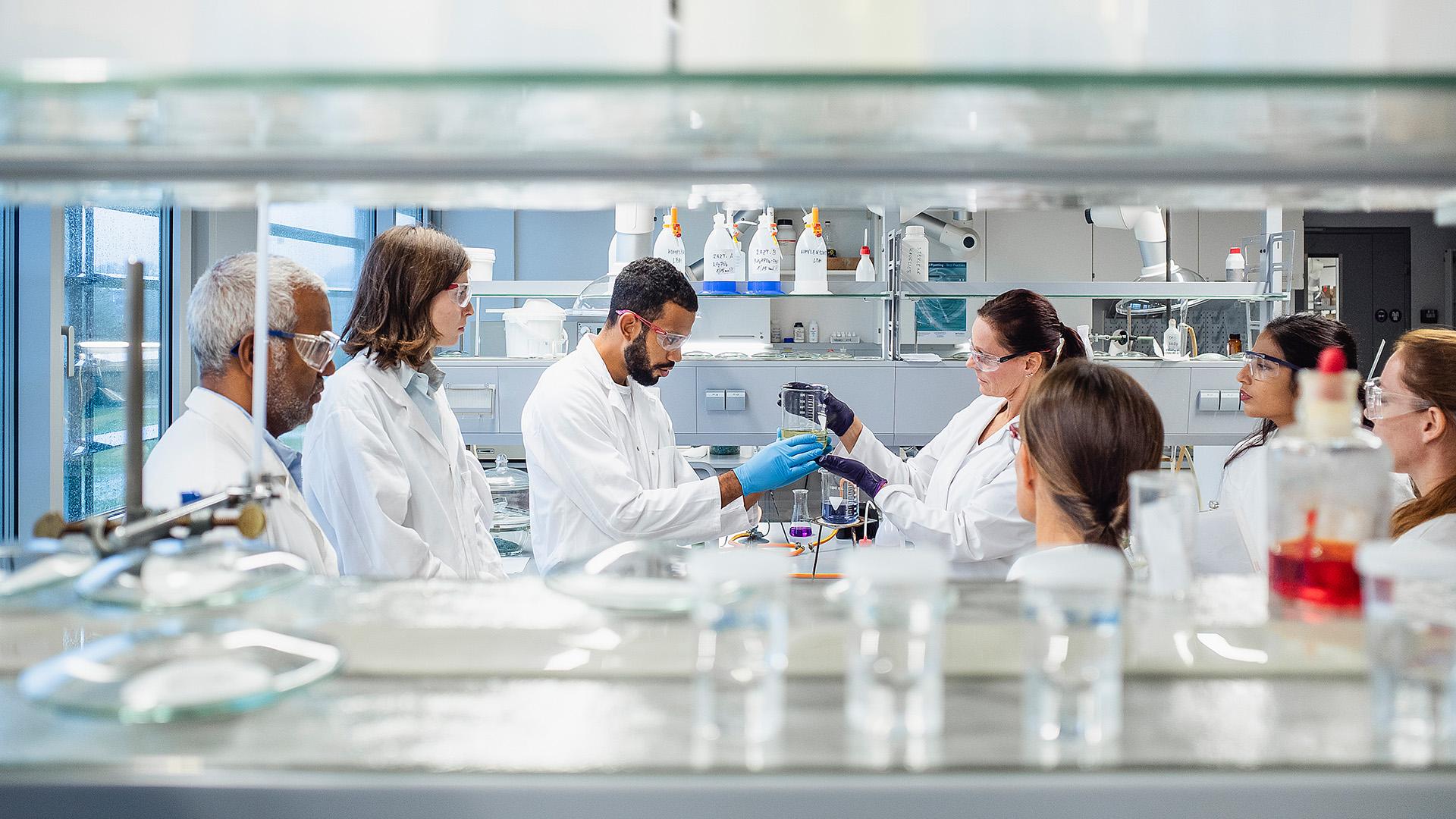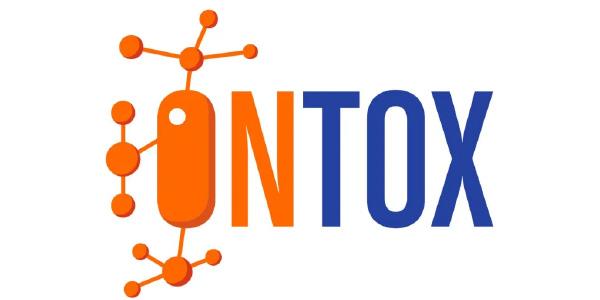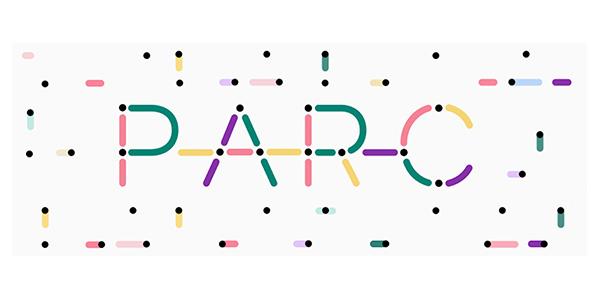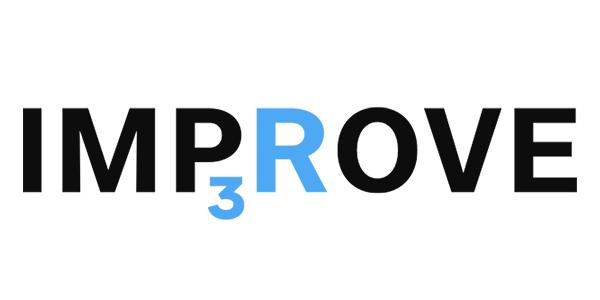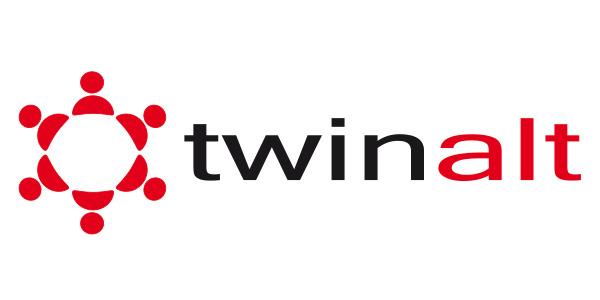European Projects
Not only in Belgium, IC-3Rs tries to reduce the number of laboratory animals and promote the use of the most human-relevant methods in biomedical research. Equally at the European level, the 3Rs-Centre has an impact by initiating (interdisciplinary) collaborations with research institutes and industrial companies. ONTOX, PARC, IMPROVE and TWINALT are research projects that receive financial support of the European Union. They aim at stimulating the development of innovative methods to ensure a safe living environment and accelerate the overall progress of biomedical research and human health.
Click on the logo of the project
European ONTOX project
Prof. Mathieu Vinken, affiliated with the IVTD research group, initiated and coordinates the European ONTOX project in which scientists identify harmful adverse effects of chemicals in the brain, kidney and liver using animal-free methods. Prof. Tamara Vanhaecke participates in the liver part. Based on an interdisciplinary collaboration between life scientists, computer scientists, (industrial) companies and legislators, the project's ultimate goal is to achieve a reduction in the number of laboratory animals in biomedical scientific research. The research within ONTOX aims at providing the tools for (future) researchers to take animal-free risk assessments of chemicals to the next level.
Various types of chemicals from the pharmaceutical, cosmetic, food and biocide industries can cause toxic adverse effects in some organs. Until now, animal tests are still widely used methods for safety assessments of chemicals. Animal models can provide important information on how different tissues and organs interact. But they are not infallible. Indeed, the action of substances is often different between animals and humans. New combinations of techniques allow researchers to replace laboratory animals in certain tests.
For ONTOX, the IVTD research team is contributing to the development of New Approach Methodologies1 for liver diseases that can be caused by chemicals, namely steatosis (fatty liver disease) and cholestasis (reduced or blocked flow of bile from the liver). The workflow includes compiling all known mechanistic toxicological and biological data on these diseases into Adverse Outcome Pathways (AOP)2. This is followed by the use of the data acquired to develop human-based in vitro assays to better investigate Repeated Dose Systemic Toxicity3 in liver cells. By using the data from the in vitro tests, the researchers are filling in gaps that were identified using artificial intelligence-based computer systems. This innovative strategy is not just limited to the ONTOX project but can also apply to other substances/projects.
1 New Approach Methodologies: In biomedical research, several interpretations of the term New Approach Methodology (NAM) exist. A commonly used definition is provided by the US EPA and describes a NAM as ' ... a broadly descriptive reference to any technology, methodology, approach, or combination thereof that can be used to provide information on chemical hazard and risk assessment that avoids the use of intact animals ...' (US EPA, 2018). In other words, a NAM refers to any technology, method, approach, or combination thereof that provides information on hazard as well as the risk of chemicals without the use of laboratory animals. In the broadest sense, those approaches and methods can include all in vitro, in silico, in chemico and ex vivo methods that replace laboratory animals. NAMs are not necessarily new methods but because of their role in chemical safety legislation and replacement of usual testing strategies, they have innovative value in toxicology (Stucki et al., 2022; Westmoreland et al., 2022).
2 Adverse Outcome Pathways (AOP): In toxicology, researchers use data from different biological levels (e.g. molecular level, cellular level and organ level), obtained by different methods, to study toxic adverse effects. To better combine these data, researchers compile them into Adverse Outcome Pathways (AOP). In this way, relationships between key events, or the first disruption that occurs in a biological system, and eventual toxic adverse effects can be better assessed (OECD, 2023).
3 Repeated Dose Systemic Toxicity: In systemic repeated-dose toxicity, researchers repeatedly expose laboratory animals to chemical substances on a daily basis for a certain period of time. That time period can extend to the maximum life expectancy of the laboratory animals being studied. This procedure allows researchers to obtain more information about the precise toxic side effects of substances in organisms. As yet, no standard or validated alternative methods to animal experiments exist to study systemic toxicity upon repeated administration but many new non-animal approaches are currently under development and evaluation (Mahony et al. 2020).
Mahony, C., Ashton, R. S., Birk, B., Boobis, A. R., Cull, T., Daston, G. P., ... & Cronin, M. T. (2020). New ideas for non-animal approaches to predict repeated-dose systemic toxicity: Report from an EPAA Blue Sky Workshop. Regulatory Toxicology and Pharmacology, 114, 104668.
OECD. (2023). Integrated Approaches to Testing and Assessment (IATA). OECD.org. https://www.oecd.org/chemicalsafety/risk-assessment/iata/
Stucki, A. O., Barton-Maclaren, T. S., Bhuller, Y., Henriquez, J. E., Henry, T. R., Nagy, E. G., ... & Clippinger, A. J. (2022). Use of new approach methodologies (NAMs) to meet regulatory requirements for the assessment of industrial chemicals and pesticides for effects on human health. Frontiers in Toxicology, 98.
US EPA. (2018). Strategic plan to promote the development and implementation of alternative test methods within the TSCA program.
Westmoreland, C., Bender, H. J., Doe, J. E., Jacobs, M. N., Kass, G. E., Madia, F., ... & Cronin, M. T. (2022). Use of New Approach Methodologies (NAMs) in regulatory decisions for chemical safety: Report from an EPAA Deep Dive Workshop. Regulatory Toxicology and Pharmacology, 135, 105261.
The PARC project
Prof. Tamara Vanhaecke and Prof. Em. Vera Rogiers take part in the PARC (Partnership for the Assessment of Risks from Chemicals) project, a 7-year European research project within the Horizon Europe programme that aims to develop and apply new non-animal methods in the regulatory hazard and risk assessment of chemicals to achieve better protection of human health and the environment.
Researchers affiliated with the IVTD research group and IC-3Rs are financially supported by the PARC project. The effects of endocrine-disrupting chemicals in humans are not well known. Research in this field is mainly done in rodents, but in the PARC project, emphasis is put on the development of human-relevant, non-animal models. More specific, the potential effects of endocrine disruptors on the interactions between the thyroid gland and the liver are studied. The project is running in collaboration with Danish researchers and exchanges of PhD students are foreseen. In another part of the project, IC-3Rs is working together with the cosmetic industry to further develop the workflow of the so-called 'Next Generation Risk Assessment' (NGRA)1. NGRA tries to solve the problem of long-term toxicity testing in animals for which no validated alternatives are yet available and for which the results are essential in risk assessment.
1 Next Generation Risk Assessment (NGRA): For the time being, safety assessments of chemical substances mainly require data derived from animal tests. Nevertheless, the use of NAMs nowadays allows researchers to rely on exclusively non-animal data obtained from new test methods and detailed information on human exposure to substances for some purposes, such as the safety assessment of cosmetic products. In certain cases, this integration of different in silico, in chemico and in vitro methods in safety assessments has the human situation as the starting point for exposure instead of animal data, is hypothesis-driven and is therefore called Next Generation Risk Assessment (NGRA). Although clear principles have been established to perform NGRA (Dent et al. 2018), regulatory guidance is not available which actually makes its practical application difficult. (Rogiers et al., 2020; Nitsche et al., 2022; Brescia et al., 2023; Petry, 2023).
Brescia, S., Alexander-White, C., Li, H., & Cayley, A. (2023). Risk assessment in the 21st century: where are we heading? Toxicology Research, Volume 12, Issue 1, February 2023, Pages 1–11, https://doi.org/10.1093/toxres/tfac087
Matthew Dent, Renata Teixeira Amaral, Pedro Amores Da Silva, Jay Ansell, Fanny Boisleve, Masato Hatao, Akihiko Hirose, Yutaka Kasai, Petra Kern, Reinhard Kreiling, Stanley Milstein, Beta Montemayor, Julcemara Oliveira, Andrea Richarz, Rob Taalman, Eric Vaillancourt, Rajeshwar Verma, Nashira Vieira O'Reilly Cabral Posada, Craig Weiss, Hajime Kojima, Principles underpinning the use of new methodologies in the risk assessment of cosmetic ingredients, Computational Toxicology, Volume 7, 2018, 20-26, https://doi.org/10.1016/j.comtox.2018.06.001.
Nitsche, K. S., Müller, I., Malcomber, S., Carmichael, P. L., & Bouwmeester, H. (2022). Implementing organ-on-chip in a next-generation risk assessment of chemicals: a review. Archives of Toxicology, 96(3), 711-741.
Petry, T. (2023). Principles underlying the next generation risk assessment approach (NGRA). https://toxminds.com/principles-underlying-the-next-generation-risk-assessment-approach-ngra/
Rogiers, V., Benfenati, E., Bernauer, U., Bodin, L., Carmichael, P., Chaudhry, Q., ... & Worth, A. (2020). The way forward for assessing the human health safety of cosmetics in the EU-Workshop proceedings. Toxicology, 436, 152421.
The European COST project IMPROVE
Prof. Joery De Kock, Prof. Tamara Vanhaecke and Prof. Em. Vera Rogiers are partners in the European COST project IMPROVE. It is a networking programme in which European 3Rs-centres are committed to promote the 3Rs-principle in biomedical research. The project consists of several working groups addressing a specific strategy to ensure that researchers better implement the 3R-principle and to achieve greater understanding of alternative methods and animal testing among both researchers and the general public.
In most European Member States, academic and government institutions established 3R- associations, whether official or not, in the first years of the 21st century. Within the IMPROVE project, led by the 'Austrian Institute of Technology' (AIT), the various 3R-centres have united and are working together to promote the implementation of the 3Rs-principle and the use of non-animal methods in biomedical research.
A first strategy in the project is to improve the translatability and relevance of animal data from biomedical research to humans. In this way, the 3Rs-centres aim to ensure that researchers always use the most human-relevant methods.
In addition, the IMPROVE project aims to promote the flow of information to both the general public and the scientific community on animal testing and non-animal methods and the dissemination of knowledge on 3R-alternative methods in biomedical research. By offering more and improved training activities related to alternative methods at different educational levels and areas (basic researchers, legislators, industry, animal welfare bodies, ...) and exchanging educational plans and teaching materials within the European network, the 3Rs-principle can gain increased uptake and implementation.
Another component of the IMPROVE project involves cooperation between the various 3Rs-centres and legislators with the aim of introducing validated or late-stage alternative methods more efficiently and quickly into the legislation of respective Member States (Neuhaus et al., 2022a; Neuhaus et al., 2022b).
Neuhaus, W., Reininger-Gutmann, B., Rinner, B., Plasenzotti, R., Wilflingseder, D., De Kock, J., ... & Spielmann, H. (2022). The rise of Three Rs centres and platforms in Europe. Alternatives to Laboratory Animals, 50(2), 90-120. download here
Neuhaus, W., Reininger-Gutmann, B., Rinner, B., Plasenzotti, R., Wilflingseder, D., De Kock, J., ... & Spielmann, H. (2022). The current status and work of Three Rs centres and platforms in Europe. Alternatives to Laboratory Animals, 50(6), 381-413. download here
The TWINALT project
Prof Tamara Vanhaecke and Prof. Em. Vera Rogiers are part of the TWINALT project. This is a European Horizon 2020 funded project under the “Widening participation and spreading excellence” Twinning action that aims to significantly strengthen a defined field of research and networking activities between the research institution of the Widening Country, acting as coordinator, and internationally leading counterparts at the EU level.
Within the TWINALT project, the Nofer Institute of Occupational Medicine in Poland (NIOM), as the institute from the Widening Country, joins forces with the Vrije Universiteit Brussel (VUB, Belgium), the Norwegian Institute for Air Research (NILU) and the University of Milan (UMIL, Italy) to enhance their research position and technological capacity towards in vitro methods for toxicity testing.
In addition, to exchange know-how through training mobilities, the four members of the TWINALT consortium also strengthen each other's skills in entrepreneurship, business case development and intellectual property management through the organisation of several events/workshops. These are open to all researchers and can provide a rich learning experience, in particular for early-stage researchers.

